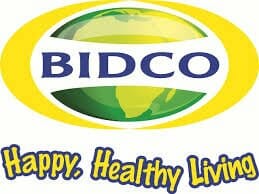[ad_1]
Rwanda has banned seven brands of peanut butter that were suspended in Kenya a week ago.
On November 4, the Kenya Bureau of Standards (Kebs) suspended brands including Truenutz by Truenutz Kenya, Fressy by Fressy Food Company Limited and Supa Meal by Supacosm Products Limited.
The others were Nuteez by Jetlak Foods Limited, Sue’s Naturals by Nature’s Way Health, Zesta by Trufoods Limited and Nutty by nature by Target Distributors.
It instructed the manufacturers to discontinue production and recall stock that had already been supplied for sale until corrective measures are taken.
Following the ban, Rwanda Food and Drugs Authority (FDA) instructed the public to stop consuming the products.
The FDA’s acting Director-General, Dr Charles Karangwa, further directed importers, distributors, supermarkets and retailers to stop the importation, distribution and sale of the “incriminated” brands and return the same to suppliers amid investigations.
Dr Karangwa further instructed all importers and supermarkets to submit reports, within 10 working days, on imported, distributed, returned quantities and available quantities of each brand.
“Further reference is made to the announcement of Kebs on seven substandard peanut butter brands on sale, issued on November 4. Rwanda FDA would want to inform the public that the following brands are suspended and recalled while conducting deep investigations,” he said in the statement.
Meanwhile, Kebs has faced further criticism for the “unfair and selective” ban on five maize flour brands over high aflatoxin levels.
Starehe Community Group, through S.G. Wachira & Co. Advocates, has demanded that Kebs rescind the decision to ban Dola by Kitui Four Mills, Kifaru by Alpha Grain Limited, Starehe by Pan African Grain Millers, 210 Two Ten by Kenblest Limited and Jembe by Kensal Rise Limited.
Starehe said the decision was unfair, discriminatory, oppressive and unlawful.
It said, “Our instruction is to oppose the ban and demand that the decision be rescinded. We also urge you not to yield to pressure by the competitors of Dola and to exercise fairness and due diligence.”
The group said Kebs did not give details, raising questions on how the decision was reached.
It further claimed that tests by the Government Chemist cleared Dola and that Kitui Flour Mills is a marked company, when it comes to competition, so smear campaigns through government institutions are the order of the day.
“Kindly refer to an expose by NTV news which showed that Jogoo, which was not banned, contained 13.87 ppb while Dola had 0. The decision, therefore, smacks of attempts by competitors to win the battle of supremacy.”
On Sunday, Kitui Flour questioned the aflatoxin test results by Kebs, arguing that their internal auditing and external laboratories have brought back different results.
The company’s general manager, through a statement, argued that aflatoxin results differ from laboratory to laboratory and so the unilateral finding that informed Kebs statement, differs and contradicts several other independent tests.
The official said their tests and from three other independent laboratories have shown levels of aflatoxin in their product to be at an acceptable level of 1.5 parts per billion (ppb) than the allowed maximum limit of 10 ppb by Kenyan standards.
[ad_2]

















































